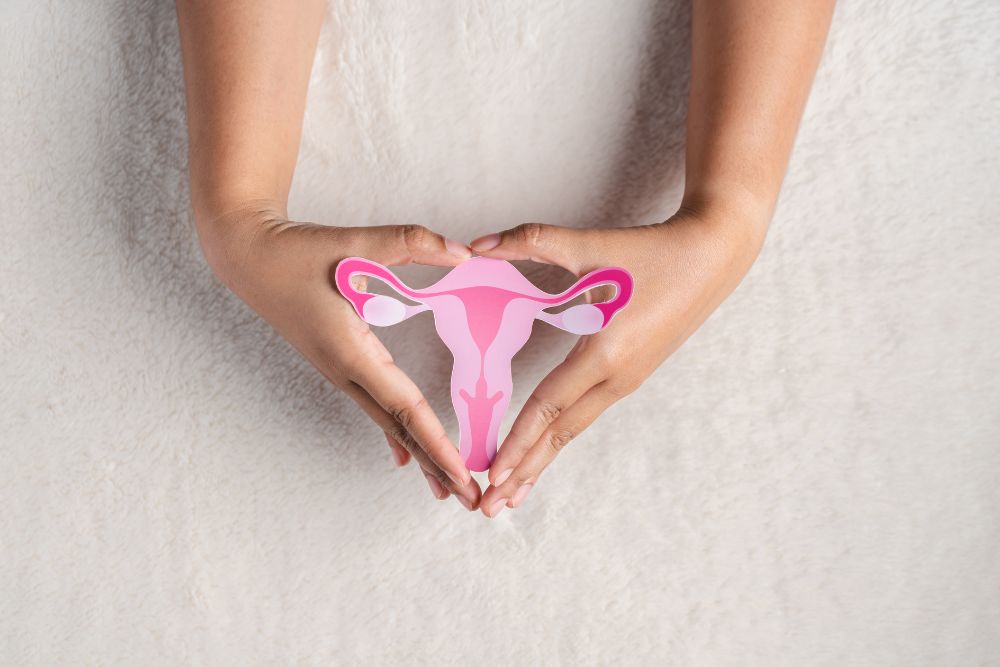Your Fertility Treatment Options With Endometriosis

If you have been diagnosed with endometriosis, you may be exploring infertility options. It may surprise you to learn that people with endometriosis — even in the advanced stages — can get pregnant, although it may be more challenging than for those who don't have the disorder. Clinical research evidence shows that up to one-third of women with endometriosis have difficulty conceiving naturally. The good news is that there are many successful reproductive treatment options available.
How Endometriosis Affects Fertility
Endometriosis can adversely affect fertility in several ways, including:
- Blockage of the fallopian tubes - (the reproductive organ where fertilization occurs and the fertilized egg (zygote) travels to the uterus for implantation). Your ability to become pregnant is hindered by blocked or scarred tubes. When an egg cannot travel through the fallopian tubes, fertilization cannot occur.
- Follicular fluid accumulation - Follicles (sacs in the ovaries, each containing a mature egg) become fluid-filled, which prevents normal egg maturation. Fertilization is not possible with immature eggs.
- Development of endometriomas on the ovaries - These cysts may cause hormonal imbalances which interfere with egg production; the result is a lower quality and quantity (ovarian reserve) of eggs. Low ovarian reserve is a common cause of infertility in people with endometriosis.
- Scar tissue formation - Scar tissue in the reproductive tract interferes with the blood supply to the ovaries, limiting the oxygen levels required for egg maturity and fertilization.
- Endometriosis treatment - Hormonal birth control pills are often used to treat endometriosis, which prevents ovulation and pregnancy.
IVF & Egg Freezing Options
People with endometriosis planning a future pregnancy are good candidates for egg preservation measures. Your fertility specialist may encourage you to freeze/preserve your eggs for future family planning. The optimal time to preserve the eggs is during the earlier stages of endometriosis when a person is likely to have high quality and quantity of eggs. If your condition progresses, limiting the ovarian reserve, you’ll have enough preserved eggs for in-vitro fertilization (IVF), regardless of advanced endometriosis symptoms.
Treatment for Fertility Caused by Endometriosis
Several treatment options are available for people with endometriosis, including:
- Superovulation and intrauterine insemination (SO-IUI) - SO-IUI fertilization involves fertility medication given to help produce mature eggs; when the eggs are deemed mature —confirmed by an ultrasound —the fertility specialist inserts your partner’s sperm directly into your uterus. This procedure is for people with mild endometriosis with a partner who has no fertility problems or with a sperm donor.
- In-vitro fertilization (IVF) - IVF is a procedure that includes superovulation and fertilization of the egg and sperm in a lab (in-vitro). The fertilized egg cells divide, and the embryo is implanted in the mother’s uterus for normal development. The implantation segment of the procedure is similar to a pap test. IVF is often recommended for those with moderate or severe endometriosis who do not respond favorably to other treatment options.
- IVF with egg donation - Endometriosis can negatively impact your body in a variety of ways, one way it causes infertility is to render your eggs unsuitable for IVF. When this occurs, an egg donor may be suggested by your fertility specialist.
- Embryo-Assisted Hatching (AH) - AH can be used for older people who have a specific complication of conception involving a hardened membrane that forms around the embryo. This abnormal membrane makes it difficult for the egg to implant. A laser and weak acid is used to permeate the hardened membrane, enabling normal hatching and increasing the chance of pregnancy.
How to Improve Your Endometriosis Symptoms
While there is no cure for endometriosis, several treatment modalities are available to improve symptoms.
Hormonal contraceptives, including estrogens and progestins, are usually the first-line treatment for endometriosis. Oral contraceptives help:
- Minimize abnormal growth of endometrial tissue
- Reduce heavy menstrual flow and menstrual cramps
- Lower inflammation resulting in less pain
Another endometriosis treatment measure includes taking NSAIDs, such as ibuprofen (Motrin) and naproxen (Naprosyn), to alleviate pain and inflammation.
Your healthcare provider may suggest non-invasive laparoscopic surgery to remove atypical endometrial tissue. A laparoscope (i.e., a small tube with a camera) is inserted through a small incision during surgery. The affected tissue is removed using a special instrument attached to the scope. Non-invasive surgery treats mild to severe endometriosis.
Start Your Family Planning Journey Today
If you are considering the next step/s in the family planning process with assisted reproductive treatment (ART), contact us at Washington Fertility Center’s Annandale or Fredericksburg, Virginia office today for a free consultation